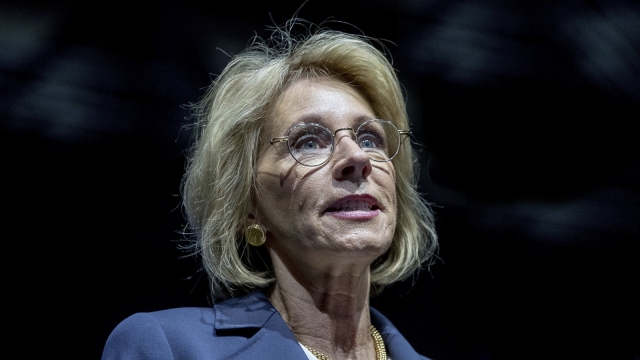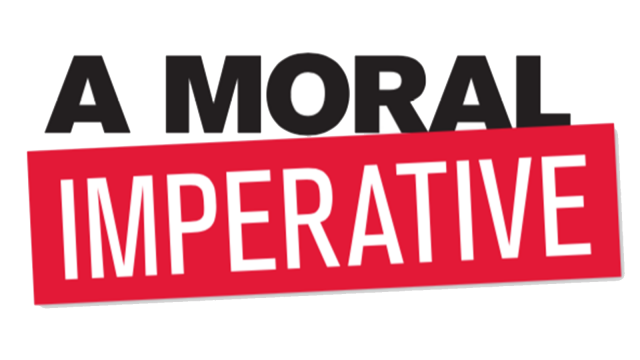Despite Onslaught of Anti-LGBTQ Bills, Equality Moving Forward in States Across the Nation
As legislative sessions get underway in state capitols across the country, HRC is tracking more than 110 …
Read moreDedicated To People, The Planet, and All Its Inhabitants – Since 1996

As legislative sessions get underway in state capitols across the country, HRC is tracking more than 110 …
Read moreLGBTQ people and allies in New Hampshire are celebrating after a week of wins in the Granite State. Not o…
Read moreHRC issued the following statement after multiple news outlets reported on an unnamed team asking NFL pro…
Read morePrEP usage continues to remain low among communities who need it most in the U.S., according to a new rep…
Read moreToday, HRC responded to Secretary Ben Carson’s release of a new mission statement for the Departmen…
Read moreHRC praised the Hawaii State Senate for passing SB 270 — legislation protecting LGBTQ youth in the state…
Read moreThe Human Rights Campaign issued the following statement in response to the Trump-Pence Administration&rs…
Read more
Today, HRC responded to a shocking admission by the Department of Education regarding their refusal to respond to civil rights complaints filed by transgender students who are barred from using bathrooms that correspond with their gender identity.
“While civil rights advocates have suspected that the Department of Education was not acting on complaints brought forward by transgender students, reports that these violations are completely being ignored are reprehensible,” said HRC Legal Director Sarah Warbelow. “The department’s failure to act conflicts with the law in multiple jurisdictions, including federal circuits, and further emboldens those who seek to discriminate against transgender students. Once again, Secretary DeVos proves she is not interested in protecting transgender students and instead is choosing to advance the dangerous Trump-Pence anti-LGBTQ agenda.”
Federal appeals courts in the 6th and 7th Circuits have ruled that transgender students are indeed covered under Title IX of the Education Amendments of 1974. Additional federal circuit courts have ruled that analogous federal civil rights statutes which prohibit sex discrimination also prohibit discrimination on the basis of gender identity. These rulings mean that the Department of Education is responsible for enforcing these decisions and accepting complaints that allege civil rights violations.
Just last week more than 700 parents of transgender children signed an HRC letter to Secretary of Education Betsy DeVos condemning her failure to protect transgender students and calling on her to recognize the basic human and civil rights of transgender young people in our nation’s schools. Also last week, Secretary DeVos complained about being criticized for not upholding the rights of students.
Since the beginning of the Trump-Pence administration, the Department of Education, under the leadership of Secretary DeVos, has worked to undermine the protections and enforcement of our nation’s civil rights laws. These actions, from withdrawing important guidance that clarified schools’ obligations to protect transgender students from discrimination under Title IX to rescinding Obama-era Title IX guidance related to schools’ obligations to address sexual harassment and sexual violence, disproportionately impact LGBTQ people.
Read more
The CDC’s landmark report on the rate of HIV infections for Black and Hispanic people put into sharp focus the barriers for LGBTQ communities of color in accessing reliable health care. Though Black communities make up only 14 percent of the population, the 2016 report said, they account for an alarming 44 percent of all new HIV infections. If current trends continue, half of all Black gay and bisexual men in the United States will be diagnosed with HIV in their lifetime.
As HRC Foundation marks the 18th year of National Black HIV & AIDS Awareness Day this February and re-commits to help end the HIV epidemic and its disproportionate impact on communities of color, we must also look beyond these grim statistics and focus on the individuals and groups leading the fight against HIV and AIDS.
Among them is Darwin Thompson, executive director of NAESM, Inc., an Atlanta-based nonprofit that works to provide national and local leadership to address the myriad of health and wellness issues confronted by Black LGBTQ men.
For Thompson, empowering his clients through advo- cacy, services and education is a fundamental aspect to overcoming the HIV epidemic in his community and throughout the United States.
“All individuals want to feel valued,” said Thompson, “and I think that we look at Black gay men as just their HIV status. We don’t understand they bring a lot more to the table.” This point hits close to home for Thompson, whose biological mother was HIV-positive, putting Thompson in the target group for contracting the disease.
In an effort to change the conversation around HIV and Black communities, Thompson and NAESM collaborated with HRC in January to host the Moral Imperative, a symposium to strengthen Historically Black Colleges and Universities’ ability to provide leadership in the ght for an HIV- and AIDS-free generation. “This collaboration with NAESM and HBCUs affirms HRC’s commitment to work with our partners and allies to end HIV and HIV-related stigma in the United States,” said Peter Cruz, associate director of HRC Foundation’s HIV and Health Equity Program. “We all must act together — in our neighborhoods, in our schools and in our homes — to truly end the devastating impact of HIV and AIDS, particularly on our most vulnerable communities.”
Part of this action is to engage in what Thompson calls “holistic prevention” — to treat and prevent not just the disease, but also recognize the larger inequalities faced by Black LGBTQ men and lead to crisis in their communities.
“Whether we are dealing with family trauma or their high blood pressure or other things, it’s important to ensure that we are targeting a holistic prevention for Black gay men,” said Thompson.
For Thompson, fundamental to this holistic approach is tackling the stigma that surrounds HIV and the Black LGBTQ community to ensure that Black men feel empowered to seek the treatment and health services they deserve. This is why outreach to HBCUs is so important.
“I’m hopeful that in my lifetime HIV will be a disease of the past,” said Leslie Hall, who manages HRC Foundation’s HBCU Program. “I’m committed to raising awareness about HIV and encouraging young people on colleges and universities across the country — especially HBCUs — to take advantage of Pre-Exposure Prophylaxis (PrEP) and other proven prevention strategies. I know we will prevail.”
Thompson agrees. “It’s about giving HBCUs the tools necessary to find the dialogue but also fight and eradicate HIV and other STI related diseases.”
But even those of us who are not enrolled in an HBCU can be part of the solution. Getting tested for HIV and sexually transmitted infections, and encouraging those close to us to do the same, is one small way we can all make a difference, Thompson believes.
“We have the right tools, right leadership in place to end the epidemic right now.
Read moreToday, HRC issued the following statement after Bermuda’s Governor John Rankin signed legislat…
Read more